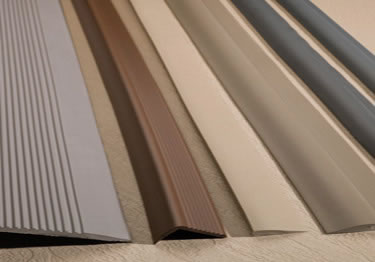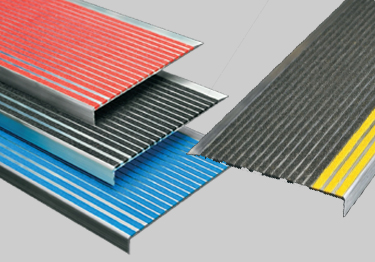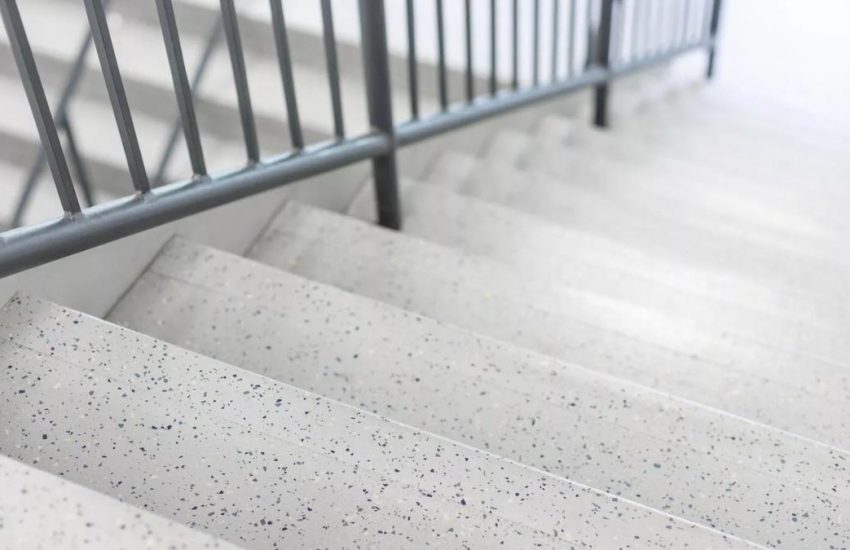Today, many people are using tiles to construct their houses thus the need for an efficient
strategy for stair nosing for a tiled step. This is a major shift in construction from the tradition where
people did not use tiles for flooring. Instead, the floors were just cemented and painted to look
better. A carpet was also placed on the floor to ensure that it looked nice. Carpets are also used to
date. In addition, stair nosing; which is a technology for placing a material at the edge of the stair
was not common. As a result, the stairs were not all that durable because when a stair edge is not
well built, chances are that it may not last for a long time. Therefore, since stair nosing for a tiled
step has become very common, it is important to address a number of questions which must be
addressed when installing it.

To start, stair nosing is a relatively new technology enabling developers to enhance stairs’ attractiveness and longevity by placing a custom-designed material on their edges. This approach has the advantage of extending the stairs’ lifespan. Especially in public/commercial buildings experiencing high daily foot traffic, stairs often face wear and tear within a few months. Tile stair nosing products prove to be efficient in such cases.

There are many tile stair nosing products which can be used in floors. These products usually come in different sizes, colours and general specifications. This means that each product is usually unique in its own way. Each has its own advantages and disadvantages. This article will present a case argument on a number of tile stair nosing products which are commonly used.
Rubber Stair Nosing
To date, the most commonly used tile stair nosing product is rubber, owing to its ease of handling and manipulation. For example, when creating a 45o curve on the edge of the stair to match the stair’s design, rubber proves to be the best option compared to other solids that require more time for manipulation. Additionally, rubber is available in a variety of colors and designs, making it suitable for any type of tile. Furthermore, rubber can be applied using glue or nuts to securely adhere to the surface. However, it has two disadvantages: it wears out over time, especially in high-traffic buildings, and its soft nature can lead to accidents by sticking to certain shoe types.
Metal Stair Nosing
Metal, a commonly used tile stair nosing product, utilizes various types of metals, with galvanized steel and aluminum being the most prevalent. These metals are chosen for their rust-resistant properties when exposed to air and water. Metals offer the advantage of being shaped into numerous forms. Currently, many floors feature tiles, known for their attractiveness compared to traditional cemented floors. To enhance a good tiled floor, consider complementing it with aesthetically pleasing tile nosing products. These products ensure a lasting, appealing appearance for the house.
Stair nosing, a relatively new technology, allows developers to enhance stairs’ attractiveness and longevity by placing custom-designed materials on their edges. This approach significantly extends the lifespan of stairs, especially in public/commercial buildings with high daily foot traffic. Tile stair nosing products prove efficient in such cases.
Numerous tile stair nosing products are available for floors, each differing in sizes, colors, and specifications. Each product is unique, with its own set of advantages and disadvantages. This article will present a case argument for several commonly used tile stair nosing products.
Wood Stair Nosing
Wood is also a type of common tile stair nosing product. However, it is rarely used because it gets affected by water which is used for cleaning the house. This makes it necessary to keep replacing it after a number of years.of designs which will be suitable for the tile floor. In addition, metals are able to last for a long period of time. Contrary to the srubbe which is explained above, no matter how metals are used, chances of them getting worn out are very few.
Explore our collection of Common Tile Stair Nosing Products
Discover the latest trends and designs that enhance both safety and aesthetics in your space. Currently, many floors feature tiles, known for their attractiveness compared to traditional cemented floors. Therefore, an appealing tiled floor should be complemented by stylish tile nosing products. These products ensure that the house maintains its charm even after many years of construction.
FAQs
Which material is best for this process?
This is an important question to ask when considering the stair nosing process for a tiled step. This is
because there are a number of materials which can be used to put stair nosing. In considering the
material to use, it is good to consider the quality of the work needed. This is because a material
could be very cheap in price but give a bad looking result. More so, it is important to look at the ease
of use of the material to use in stair nosing for a tiled step. Lastly, it is important to consider the
availability of the material. Experience has shown that it is usually very easy to do rubber stair nosing
for a tiled step than other materials. This is because rubber is usually relatively cheaper than other
materials, durable and easy to use. In this case, it is usually very be easy to fold.
At what cost will the process be?
As in many fields, in construction too, it is usually very important to look at the total cost which will
be used in stair nosing for a tiled step. One thing that will determine the cost is the number of steps
to apply the technology on. If your house has many steps, it means that more money will be used. In
addition, the material used for stair nosing will also determine the cost. The price of these materials
will depend on the place where the project is situated. For instance, in America, the cost of rubber is
relatively low when compared to that of metal. Lastly, the cost of the contractor who will be used in
the project will also be necessary. In this, it is good to understand that different contractors charge
different amount of cash on stair nosing for a tiled step. Therefore, I advise that you first get price
quotations from more than 3 firms and then go with the cheapest one.
